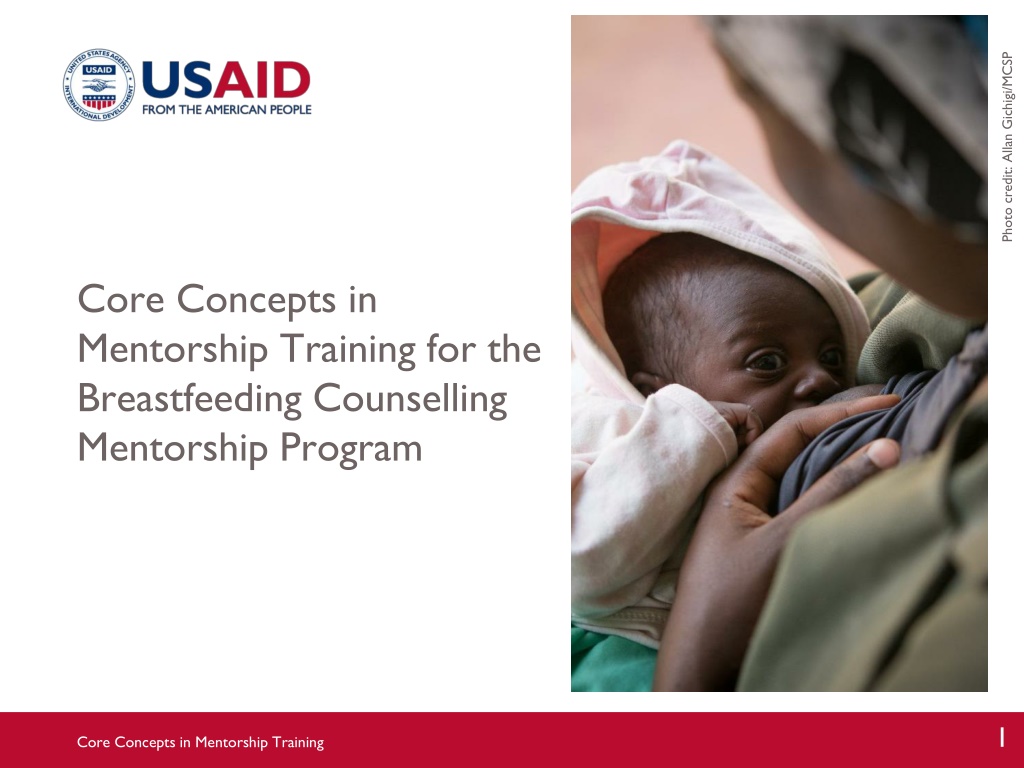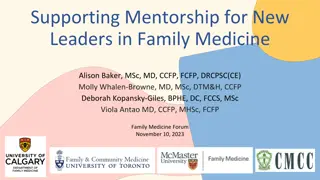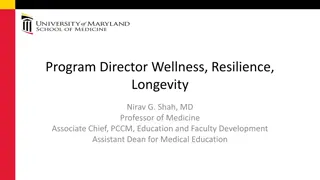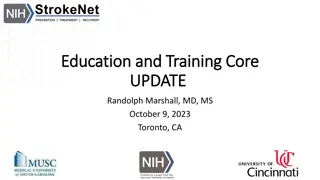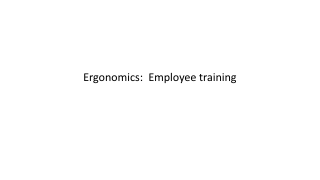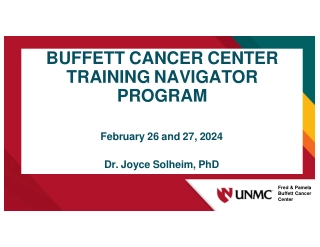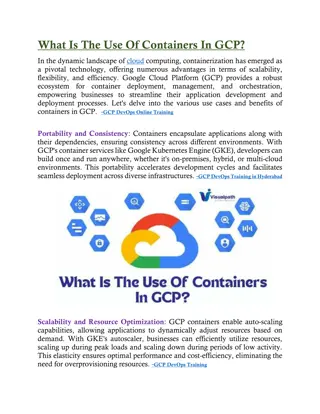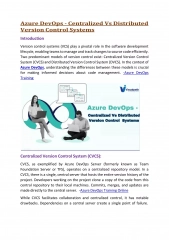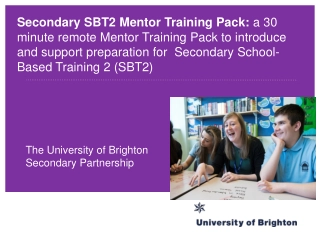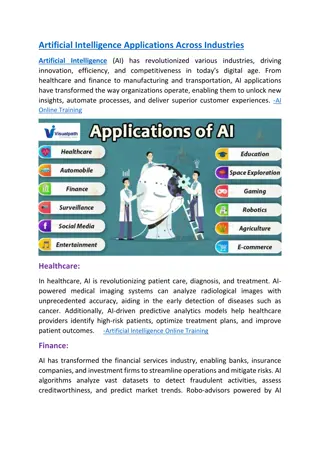Mentorship Training for Breastfeeding Counselling Program
This mentorship training program aims to equip mentors with the skills and knowledge needed to be effective clinical mentors in a breastfeeding counselling program. Participants will learn about mentorship structure, clinical mentoring, strategies, building relationships with mentees, effective communication, and more. The training focuses on fostering a positive mentor-mentee dynamic to support breastfeeding initiatives.
- Mentorship Training
- Breastfeeding Counselling
- Clinical Mentoring
- Relationship Building
- Effective Communication
Mentorship Training for Breastfeeding Counselling Program
PowerPoint presentation about 'Mentorship Training for Breastfeeding Counselling Program'. This presentation describes the topic on This mentorship training program aims to equip mentors with the skills and knowledge needed to be effective clinical mentors in a breastfeeding counselling program. Participants will learn about mentorship structure, clinical mentoring, strategies, building relationships with mentees, effective communication, and more. The training focuses on fostering a positive mentor-mentee dynamic to support breastfeeding initiatives.. Download this presentation absolutely free.
Presentation Transcript
Photo credit: Allan Gichigi/MCSP Core Concepts in Mentorship Training for the Breastfeeding Counselling Mentorship Program 1 Core Concepts in Mentorship Training
Welcome, Introductions, and Objectives 2 Core Concepts in Mentorship Training
Introductions What is your name? What is your job/title? Why are you here? What do you hope to get from this training? 3 Core Concepts in Mentorship Training
Goal and Course Objectives The goal of the training is to prepare mentors for their role in the breastfeeding counselling mentorship program by providing them with the skills, knowledge, and resources necessary to be an effective clinical mentor. At the end of the course, it is expected that participants will be able to Describe the structure of the mentorship program. Define clinical mentoring. Identify mentoring strategies. Explain the benefits of clinical mentoring. Describe how to build a positive relationship with a mentee. Demonstrate effective feedback and communication skills. Choose the appropriate mentoring strategy for a given teaching moment. 4 Core Concepts in Mentorship Training
Session 1: Orientation to the Breastfeeding Counselling Mentorship Program 5 Core Concepts in Mentorship Training
Learning Objectives By the end of this session, participants will be able to Describe the structure of the mentorship program. 6 Core Concepts in Mentorship Training
Review of Key Concepts: The Importance of Breastfeeding Breastfeeding has health, nutrition, and cognitive benefits for both children and mothers. International recommendations include initiating breastfeeding within one hour of birth exclusive breastfeeding for the first six months continued breastfeeding with complementary feeding until two years of age and beyond. 7 Core Concepts in Mentorship Training
Review of Key Concepts: Breastfeeding Counselling Skilled breastfeeding counselling has shown improvements in early initiation of breastfeeding, exclusive breastfeeding, and continued breastfeeding. The World Health Organization (WHO) recommends all pregnant women and mothers with young children receive breastfeeding counseling. Effective counseling requires specific knowledge, skills, and behaviors (competencies). 8 Core Concepts in Mentorship Training
Review of Key Concepts: The Baby-Friendly Hospital Initiative WHO and UNICEF released updated BFHI implementation guidance in 2018. Step 2, of the Ten Steps to Successful Breastfeeding, is to ensure that staff have sufficient knowledge, competence, and skills to support breastfeeding. The BFHI Training Course for Maternity Staff teaches health workers about BFHI. The Competency Verification Toolkit provides guidance and tools for countries to assess staff competency in the knowledge, skills, and attitudes needed to implement the Ten Steps. 9 Core Concepts in Mentorship Training
Process of Developing the Breastfeeding Mentoring Counselling Program February September 2021 November 2021 June 2022 March November 2023 September 2023 Hosted a mentorship package design workshop Held a learning intervention: co-creation workshop Implementation research took place Held two workshops Conducted a scoping exercise Learn about current efforts to develop breastfeeding counselling competencies. Identify and prioritize gaps or weaknesses. Select an intervention that addresses gaps or weaknesses and complements efforts in Kenya. Define what type of capacity strengthening activity would suit the needs, timeline, and long-term investment that the BFHI Task Force would support. Participants select a facility-based mentoring approach. Identify points of care for mentoring. Prioritise competencies. Establish criteria for selecting mentors and mentees. Determine the appropriate mentor- to-mentee ratio. The mentorship program was piloted in the antenatal care (ANC) and postnatal care departments of Mbagathi County Referral Hospital (a Level 5 health facility) in Nairobi County, Kenya from March September 2023 as part of an implementation research study. Manuscript co-authors learned how to draft a manuscript for submission to a journal. Stakeholders met with representatives from Mbagathi County Referral Hospital to review and update the mentorship program package based on the learnings from the implementation research. 10 Core Concepts in Mentorship Training
Implementation Research on the Feasibility of a Breastfeeding Counselling Mentorship Program (1) Tested the breastfeeding counselling mentorship program at Mbagathi County Referral Hospital in Nairobi County from March September 2023. Primary objective: Evaluate the feasibility of the mentorship program. Sub-objectives: Identify factors that enable and hinder implementation. Determine if the program improves mentees knowledge, practices, and self-efficacy to provide quality breastfeeding counselling. Determine if the program improves pregnant and postpartum women s perceptions of breastfeeding counselling. 11 Core Concepts in Mentorship Training
Implementation Research on the Feasibility of a Breastfeeding Counselling Mentorship Program (2) Trained and enrolled 7 mentors and 21 mentees in the program Conducted mentorship in the outpatient antenatal care (ANC) clinic, inpatient ANC ward, labour and delivery ward, and inpatient postnatal care (PNC) ward Evaluated the feasibility of the mentorship program by conducting electronic knowledge tests electronic surveys with mentors and mentees interviews with clients in the service delivery points where mentorship took place focus group discussions with mentors and mentees interviews with health facility leadership. Used the results from the implementation research to update the mentorship program package (i.e., implementation guidance, this training, tools, job aids, and forms) in November 2023. 12 Core Concepts in Mentorship Training
Rationale for a Mentorship Program to Strengthen Breastfeeding Counselling Competencies Kenya embraced the BFHI Training Course for Maternity Staff, which serves as a strong foundation around which to structure a mentorship program. Kenya seeks to scale up BFHI and a mentorship program would contribute to efforts to achieve Step 2 of the BFHI Ten Steps and sustainably strengthen strengthen health worker competencies. Mentorship is a flexible teaching and learning process that can address on-the- job challenges. There are limited opportunities for continuing professional development and refresher training on breastfeeding counselling for health care workers. A mentorship program would fill this gap in a meaningful way. A breastfeeding counselling mentorship package would create a critical bridge between the BFHI, the BFHI Training Course for Maternity Staff, and the BFHI Competency Verification Toolkit, helping to operationalize and embed these competencies across facility staff. 13 Core Concepts in Mentorship Training
Goal and Objectives of the Mentorship Program Goal: Improve the quality of breastfeeding counselling provided by health workers. Objectives: Reinforce and strengthen 7 of the 16 breastfeeding counselling competencies needed for implementation of BFHI. Support mentees to apply skills learned in the BFHI Training Course for Maternity Staff during breastfeeding counselling sessions with clients. Cultivate a skilled team of on-site mentors who can champion and support quality breastfeeding counselling and serve as a resource for mentees. Create an enabling environment for providing quality breastfeeding counselling at all relevant service delivery points. 14 Core Concepts in Mentorship Training
Mentorship Program Package Implementation Guidance for a Facility-Based Breastfeeding Counselling Mentorship Program: Includes mentor and mentee job aids and monitoring and reporting forms Includes slide decks to use during orientation and inception meetings Photo credit: Allan Gichigi/MCSP Core Concepts in Mentorship Training course and accompanying materials: Facilitator s Guide Participant s Manual slide deck 15 Core Concepts in Mentorship Training
Key Definitions A mentor is an experienced and empathetic person, proficient in her/his content area, who teaches and coaches another individual (mentee) or a group of individuals (mentees) in-person and/or virtually to ensure competent workplace performance and provide ongoing professional development.1 A mentee is a direct care provider who delivers breastfeeding counseling to clients. She/he is a dedicated skilled health provider who seeks to grow and develop personally and professionally to successfully achieve her/his goals to strengthen her/his breastfeeding counseling competencies with the support of a mentor. For this mentorship program, mentees are working in the antenatal care services, postpartum care unit, newborn care unit, or in the child welfare clinic. 1. MCSP (Maternal and Child Survival Program). 2018. Mentoring for Human Capacity Development: Implementation Principles and Guidance. Accessed June 30, 2022. https://www.mcsprogram.org/resource/mentoring-human-capacity-development-implementation-principles-guidance/ 16 Core Concepts in Mentorship Training
Description of the Mentorship Program In-house, facility-based mentorship program whereby mentors and mentees are based at the same facility. Designed to be used at three levels of health facilities: level 3B, level 4, and level 5. Can be implemented at several service delivery points, including antenatal care services, labour and childbirth services, postnatal care services, newborn care services, and paediatric services. Mentors and mentees are trained in the BFHI Training Course for Maternity Staff. When mentoring starts, mentees receive regular feedback and support from their mentor as they practice the skills taught in the BFHI maternity training in their day-to-day work. Mentors and mentees engage in quality improvement activities at the health facility. Typically takes four months for a mentee to acquire focus competencies. 17 Core Concepts in Mentorship Training
Competencies Prioritised for the Mentorship Program Use listening and learning skills whenever engaging in a conversation with a mother. Engage in antenatal conversation about breastfeeding. Facilitate breastfeeding within the first hour, according to cues. Discuss with a mother how breastfeeding works. Assist mother getting her baby to attach to the breast. Help a mother to breastfeed a small or sick baby. Ensure seamless transition after discharge. WHO (World Health Organization) and UNICEF (United Nations Children's Fund). 2020a. Baby Friendly Hospital Initiative (BFHI) Training Course for Maternity Staff. Geneva: WHO. https://www.who.int/publications/i/item/9789240008915. 18 Core Concepts in Mentorship Training
Facility Management of the Mentorship Program The BFHI facility coordinator manages the mentorship program. The BFHI Facility Implementation Team works closely with the coordinator to oversee the mentorship program. Members include health facility in-charge head of the labour and delivery ward head of the postnatal ward head of the nutrition department head of paediatrics (inpatient and outpatient) head of maternal and child health unit the facility continuous quality improvement focal person. 19 Core Concepts in Mentorship Training
Implementing the Breastfeeding Counselling Mentorship Program (1) Action 1: Train health facility staff in the BFHI Training Course for Maternity Staff. Action 2: Identify and prioritise service delivery points. Action 3: Select and train mentors. Action 4: Select mentees. Action 5: Pair mentors and mentees. 20 Core Concepts in Mentorship Training
Implementing the Breastfeeding Counselling Mentorship Program (2) Action 6: Orient mentors and mentees. Action 7: Conduct mentoring. Action 8: Conduct monthly meetings. Action 9: Assess competencies for graduation. Action 10: Monitor the program. 21 Core Concepts in Mentorship Training
Sequence and Timing of Actions for Implementing the Breastfeeding Counselling Mentorship Program at a Health Facility 22 Core Concepts in Mentorship Training
ACTION 3: SELECT AND TRAIN MENTORS Minimum Requirements for Selecting Mentors Completed the BFHI Training Course for Maternity Staff Provides direct care to clients in one of the prioritised service delivery point(s) Has met all qualifications to work as a doctor, nurse, nutritionist, clinical officer, or midwife Has a minimum of two years of experience providing maternal and newborn care Demonstrates a high level of competency (i.e., knowledge, skills, and attitudes) in providing breastfeeding counselling,observing breastfeeding counselling, and accurately assessing breastfeeding counselling competencies Senior management is supportive and agrees to allow staff to serve as a mentor Conversant with the Breast Milk Substitutes (BMS) Act of 2012, the International Code of Marketing of BMS, and the subsidiary BMS regulations of 2021 Avoids conflicts of interest particularly with companies that produce BMS designated products, or from their parent or subsidiary companies, or political leaders 23 Core Concepts in Mentorship Training
ACTION 3: SELECT AND TRAIN MENTORS Additional Considerations for Selecting Mentors Availability Communication and organisational skills Other responsibilities Reliability Critical thinking and problem-solving skills Level of professional expertise Resilience and adaptability Experience being in a supervisory role Supportive and positive attitude in approach to work Experience with mentoring and pre- service professional education Attention to detail Ability to be a leader and influence people Commitment to improving the quality of care for patients Knowledge about maternity care and infant feeding practices within the BFHI context to accurately detect both correct and incorrect knowledge, skills, and attitudes (behaviours) Willingness to learn new skills Willingness to commit to participating in the mentorship activities for the duration of the mentorship program 24 Core Concepts in Mentorship Training
ACTION 3: SELECT AND TRAIN MENTORS Roles and Responsibilities of Mentors Provide mentoring, supporting the mentee(s) on all aspects of breastfeeding counselling, strengthening the mentees knowledge, skills. and attitudes. Demonstrate and model breastfeeding counselling competencies. Observe mentee(s) providing breastfeeding counselling, using the appropriate Observation Tool for the service delivery point. Focus on observing counselling interactions and providing feedback to the mentee(s) both affirming and corrective. Facilitate professional growth in a non-punitive way. Encourage learning and improvement in breastfeeding counselling competencies. Build a rapport with mentee(s). Plan and conduct weekly check-ins with their assigned mentee(s) to review documentation and action points from the previous meetings. Be available to answer mentees questions and provide support to mentee(s). Make use of job aids and tools. Fill out monitoring and reporting forms. Participate in monthly mentoring meetings. 25 Core Concepts in Mentorship Training
ACTION 7: CONDUCT MENTORING Mentoring: Demonstration, Observation, Debrief, and Check-In Takes place one to three times per week Demonstration: Mentees observe mentors providing breastfeeding counselling, demonstrating the competencies, and modelling best practices. Observation: Mentors observe mentees providing breastfeeding counselling. Mentors perform competency assessments of mentees. Debrief: Mentors provide feedback to mentees. Takes place once every one or two weeks Check-in: Debrief counselling sessions observed, provide feedback, conduct clinical teaching, etc. 26 Core Concepts in Mentorship Training
ACTION 9: ASSESS COMPETENCIES FOR GRADUATION Graduation from the Mentorship Program Mentees will graduate from the mentorship program when they have demonstrated high quality breastfeeding counselling. Typically, this can be accomplished within four months of mentorship, but it may take more or less time. Graduation from the mentorship program includes a combination of Mentee confident to demonstrate each task relevant to the focus competencies in their service delivery point Mentor confident in the mentee s ability to demonstrate each task (measured by performance indicators). 27 Core Concepts in Mentorship Training
ACTION 4: SELECT MENTEES Next Steps: Selecting Mentees The BFHI Facility Implementation Team selects mentees. They will consult mentors during the selection process. They will use criteria from the implementation guidance, including minimum requirements for mentees, as well as findings from the facility self-assessment and complementary assessment activities. 28 Core Concepts in Mentorship Training
ACTION 4: SELECT MENTEES Minimum Requirements for Selecting Mentees Completed the BFHI Training Course for Maternity Staff Provides direct care to clients in one of the prioritised service delivery point(s) Has met all qualifications to work as a doctor, nurse, nutritionist, clinical officer, midwife, or breastfeeding peer supporter Senior management is supportive and agrees to allow staff to participate as a mentee Avoids conflicts of interest particularly with companies that produce BMS designated products, or from their parent or subsidiary companies, or political leaders. 29 Core Concepts in Mentorship Training
ACTION 4: SELECT MENTEES Roles and Responsibilities of Mentees Actively participate in mentorship activities for the duration of the program Apply new learning on breastfeeding counselling in their daily work. Practise the skills focused on during mentoring observations. Participate in weekly check-ins and monthly mentorship meetings. Complete the reporting forms. Make use of job aids. 30 Core Concepts in Mentorship Training
ACTION 5: PAIR MENTORS AND MENTEES Next Steps: Pairing Mentors and Mentees The BFHI Facility Implementation Team determines the best ratio for mentor-to-mentee (i.e., one-to-one, one mentor to three mentees) They will consult mentors during the pairing process. Considerations for pairing: cadre of the mentor and mentee mentor-to-mentee ratio chosen unit where the mentor and mentee work skill level of mentees roles of mentors and mentees in the facility personality age and experience. 31 Core Concepts in Mentorship Training
ACTION 6: ORIENT MENTORS AND MENTEES Next Steps: Orientation Meetings for the Mentorship Program (1) Following the selection and pairing, there will be two orientation meetings, each serving a different purpose: Mentor only orientation meeting: review of the description of the program expectations of mentors (roles and responsibilities) how to start mentoring and review of mentoring approaches review of mentor-mentee pairing selections explanation of program reference materials, job aids, monitoring and reporting forms, and information, education, and communications (IEC) materials and how to use them start and end dates and length of the mentorship program schedule of monthly mentoring meetings outstanding questions 32 Core Concepts in Mentorship Training
ACTION 6: ORIENT MENTORS AND MENTEES Next Steps: Orientation Meetings for the Mentorship Program (2) Mentor and mentee orientation meeting: In addition to the topics covered in the mentor only orientation, this orientation will cover brief overview of clinical mentoring minimum requirements for selecting mentors and mentees additional considerations for selecting mentors and mentees expectations of mentees (roles and responsibilities) explanation of the process of pairing of mentees to mentors mentees complete the Mentee Self-Evaluation Form 33 Core Concepts in Mentorship Training
Key Points The goal of the mentorship program is to improve the quality of breastfeeding counselling provided by health workers. Mentorship was chosen as the preferred approach for strengthening breastfeeding counselling competencies for a number of reasons; it is a flexible teaching and learning process that can address on-the-job challenges, it can fill the gap between trainings and continuing professional development, and it contributes to the Kenya Ministry of Health s efforts to scale up BFHI. Mentors have a critical role to play in the mentorship program and were selected based on established criteria. Next steps before mentoring begins include selecting mentees, pairing mentors with mentees, and orientation meetings to learn and understand more about your roles and responsibilities in the program. 34 Core Concepts in Mentorship Training
Session 2: What is Clinical Mentoring? 35 Core Concepts in Mentorship Training
Learning Objectives By the end of this session, participants will be able to Define clinical mentoring and distinguish it from supportive supervision. Articulate the rationale for, and objectives of, clinical mentoring. Outline characteristics of effective mentors. Explain common challenges of mentoring. 36 Core Concepts in Mentorship Training
Partner Brainstorm What Is Clinical Mentoring? Photo credit: JSI 37 Core Concepts in Mentorship Training
Clinical Mentoring: Definition A sustained, collaborative relationship in which a highly experienced health care provider guides improvement in the quality of care delivered by other providers and the health care systems in which they work 38 Core Concepts in Mentorship Training
What Breastfeeding Counselling Mentors Do Build relationships. Strengthen confidence through positive feedback. Identify areas for improvement. Provide responsive coaching and model best practices. Collect and report on data as part of the mentorship program. 39 Core Concepts in Mentorship Training
Why Clinical Mentoring for Breastfeeding Support? Quality counselling and support results in a 90 percent increase in exclusive breastfeeding rates for infants aged 0 5 months.1 Health workers are key to giving support, and counselling skills are complex. Training alone is limited in providing opportunities for practicing skills learned during training. Mentorship is a flexible learning and teaching approach that is effective in improving clinical competence.2 1. Haroon, S., J.K. Das, R.A. Salam, A. Imdad, & Z.A. Bhutta. 2013. Breastfeeding Promotion Interventions and Breastfeeding Practices: A Systematic Review . BMC Public Health, 13 (Suppl 3): S20. https://doi.org/10.1186/1471-2458-13-S3-S20 Feyissa, G.T., D. Balabanova, M. Woldie. 2019. How Effective are Mentoring Programs for Improving Health Worker Competence and Institutional Performance in Africa? A Systematic Review of Quantitative Evidence. Journal of Multidisciplinary Healthcare 12(5): 989 1005. https://doi.org/10.2147/JMDH.S228951. 2. 40 Core Concepts in Mentorship Training
Activity: Mentoring vs. Supervision (1) In which category would you place the following? Supervision Mentoring Which fall into both categories? 41 Core Concepts in Mentorship Training
Overlap: Monitoring Available via distance communication for support between visits Mentoring vs. Supervision (2) Supervision Critical Hierarchical Responsible for performance Focused on reports, forms, and data collection Performance management Accountable for performance Focused on the success of the team Driven by standards for the department/team Big picture view Sustained over a long period of time Mentoring Coaching Participatory Encourages self-evaluation Building a relationship and trust Focused on building confidence, skills development Focused on the individual Driven by the health care worker/receiver Collaborative, relationship of equals Individualized view Typically of a fixed duration 42 Core Concepts in Mentorship Training
Components of Mentoring (1) ITECH (International Training Education Center on HIV). 2008. Basics of Clinical Mentoring. Accessed June 30, 2022. https://www.go2itech.org/HTML/CM08/toolkit/training/index.html 43 Core Concepts in Mentorship Training
Components of Mentoring (2) ITECH (International Training Education Center on HIV). 2008. Basics of Clinical Mentoring. Accessed June 30, 2022. https://www.go2itech.org/HTML/CM08/toolkit/training/index.html 44 Core Concepts in Mentorship Training
Components of Mentoring (3) ITECH (International Training Education Center on HIV). 2008. Basics of Clinical Mentoring. Accessed June 30, 2022. https://www.go2itech.org/HTML/CM08/toolkit/training/index.html 45 Core Concepts in Mentorship Training
Components of Mentoring (4) ITECH (International Training Education Center on HIV). 2008. Basics of Clinical Mentoring. Accessed June 30, 2022. https://www.go2itech.org/HTML/CM08/toolkit/training/index.html 46 Core Concepts in Mentorship Training
Components of Mentoring (5) ITECH (International Training Education Center on HIV). 2008. Basics of Clinical Mentoring. Accessed June 30, 2022. https://www.go2itech.org/HTML/CM08/toolkit/training/index.html 47 Core Concepts in Mentorship Training
Components of Mentoring (6) ITECH (International Training Education Center on HIV). 2008. Basics of Clinical Mentoring. Accessed June 30, 2022. https://www.go2itech.org/HTML/CM08/toolkit/training/index.html 48 Core Concepts in Mentorship Training
Characteristics of a Good Mentor Experienced in the subject area Good technical knowledge of breastfeeding, as well as understanding the challenges and obstacles faced by new mothers Enthusiastic and comfortable incorporating diverse situations/experiences into teaching Able to help mentee turn mistakes into learning Takes a back-seat approach to teaching, avoiding lectures Allows mentee to explore and learn on his/her own Understands clinical systems to help mentees address systemic issues 49 Core Concepts in Mentorship Training
Characteristics of Effective Mentoring Relationships Is warm, safe, respectful, trustful Both mentor and mentee want to be involved Mentor uses active and reflective listening Mentor/mentee able to work through misunderstandings Continuity of the relationship over time Power is shared Learning is two-way: mentor interested in mentee s ideas 50 Core Concepts in Mentorship Training
